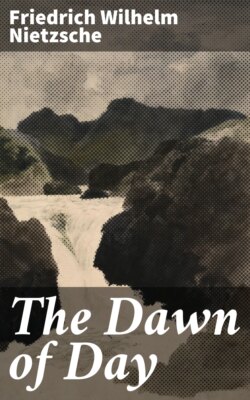Читать книгу The Dawn of Day - Friedrich Wilhelm Nietzsche - Страница 30
На сайте Литреса книга снята с продажи.
20.
ОглавлениеTable of Contents
Free-doers and Free-thinkers.—Compared with free-thinkers, free-doers are at a disadvantage, because it is evident that men suffer more from the consequences of actions than of thoughts. If we remember, however, that both seek their own satisfaction, and that free-thinkers have already found their satisfaction in reflection upon and utterance of forbidden things, there is no difference in the motives; but in respect of the consequences the issue will be decided against the free-thinker, provided that it be not judged from the most superficial and vulgar external appearance, i.e. not as every one would judge it. We must make up for a good deal of the calumny with which men have covered all those who have, by their actions, broken away from the authority of some custom—they are generally called criminals. Every one who has hitherto overthrown a law of established morality has always at first been considered as a wicked man: but when it was afterwards found impossible to re-establish the law, and people gradually became accustomed to the change, the epithet was changed by slow degrees. History deals almost exclusively with these wicked men, who later on came to be recognised as good men.
